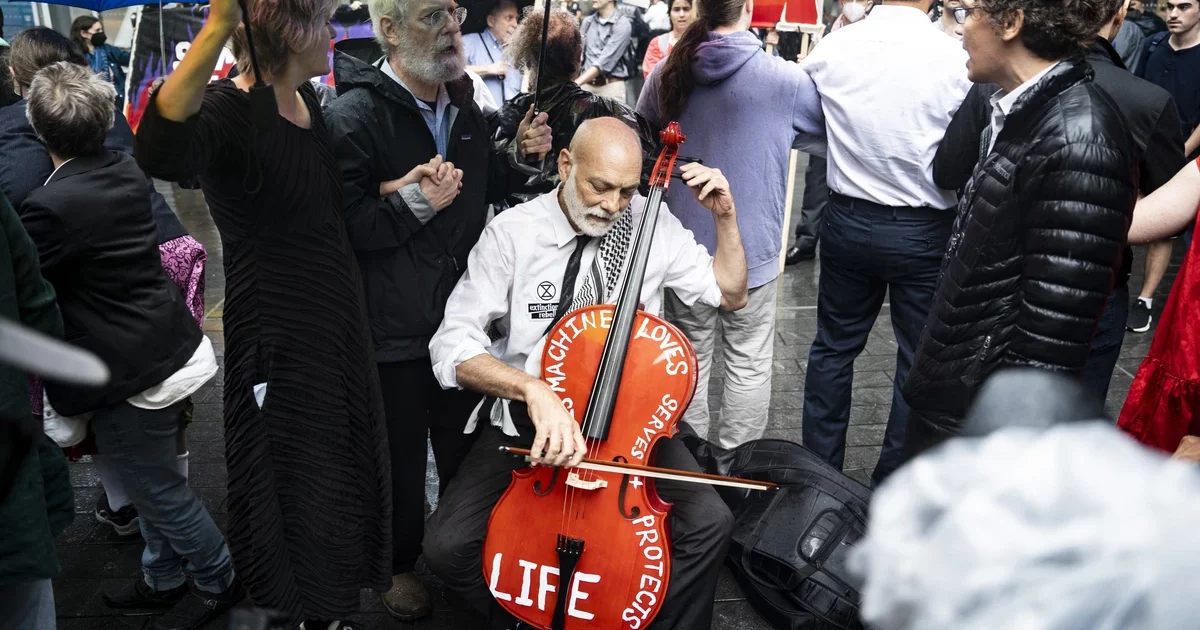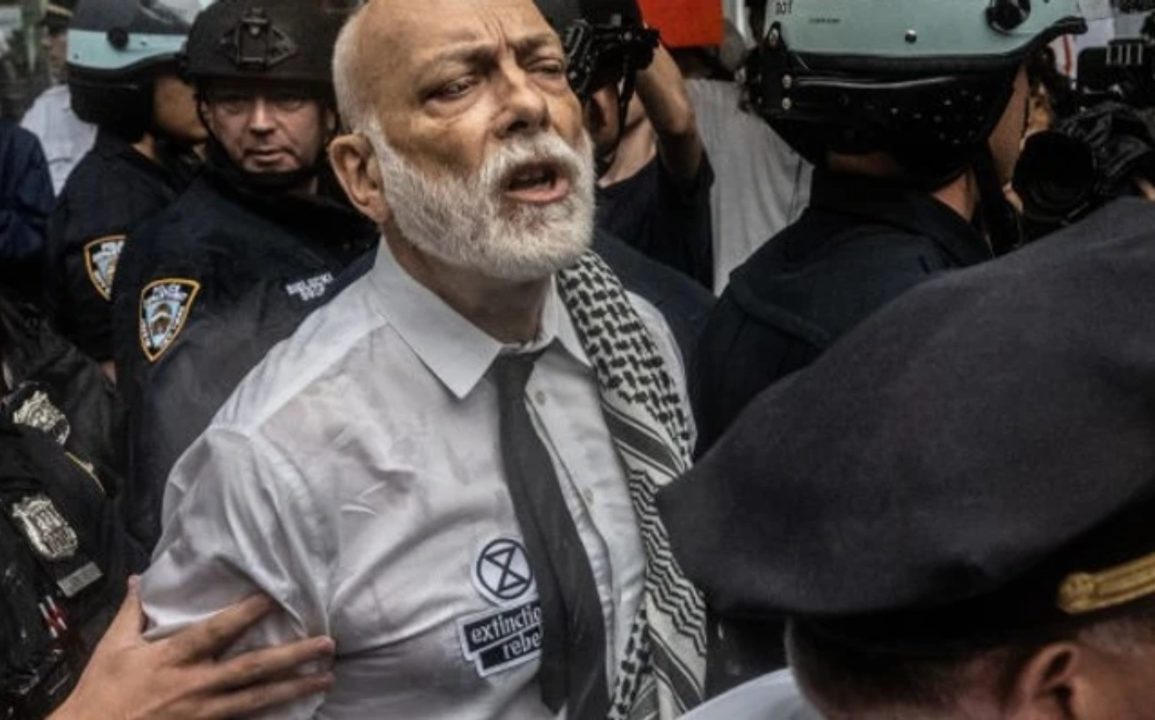In early August, two climate activists, John Mark Rozendaal and Alec Connon, were arrested outside Citibank’s New York headquarters for participating in a protest against the bank’s financing of the fossil fuel industry. Rozendaal, a former music instructor, was playing a Bach solo on his cello, while Connon, the director of the Stop the Money Pipeline nonprofit, shielded him with an umbrella.
The police claimed their actions violated a temporary restraining order linked to an unrelated charge of assault that was later dropped. Both activists were charged with criminal contempt, which could carry up to seven years in prison.
The arrest of Rozendaal and Connon sparked international concern, with Mary Lawlor, the UN special rapporteur on human rights defenders, intervening. Lawlor, along with three other UN experts, sent a formal letter to US authorities expressing concern that the charges lacked merit and appeared to punish the activists for peacefully protesting climate change and human rights.
Despite their efforts, the US government failed to respond within the standard 60-day timeframe, prompting Lawlor to make the letter public. She criticized the government for criminalizing climate activists instead of addressing their demands for urgent climate action.

The two activists eventually pleaded guilty to disorderly conduct for their participation in the protest, which was part of a broader campaign calling on Citibank to stop funding fossil fuel projects and invest in renewable energy.
This protest was part of a larger wave of nonviolent civil disobedience over the summer, where activists across the globe engaged in similar actions to demand stronger climate policies from governments and corporations. While many activists were arrested, most charges were dismissed, though a few cases proceeded through the courts.
The crackdown on climate activism is growing, with authorities increasingly using criminal and civil charges to retaliate against those demanding climate action. Evidence suggests a coordinated effort between corporations, lawmakers, and security forces to stifle dissent.
According to Lawlor’s team, around a third of the climate activists they assisted from May 2020 to late 2023 faced criminal or civil charges. This trend intensified in 2024, as democratic and authoritarian governments alike adopted this strategy to suppress environmental protests.
Internationally, the crackdown on climate activists continues to escalate. In Uganda, 15 student activists were recently granted bail after being jailed for a month for protesting a transnational oil pipeline. In the UK, several members of the Just Stop Oil movement received harsh sentences for their protests.
The US is also seeing heightened legal actions, including a lawsuit against Greenpeace over its involvement in the Standing Rock protests and charges against activists opposing a police training facility in Atlanta. These developments signal a growing global effort to suppress climate activism and maintain the status quo of fossil fuel expansion, highlighting the ongoing conflict between environmental defenders and powerful corporate interests.

